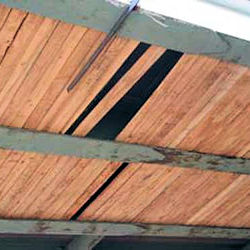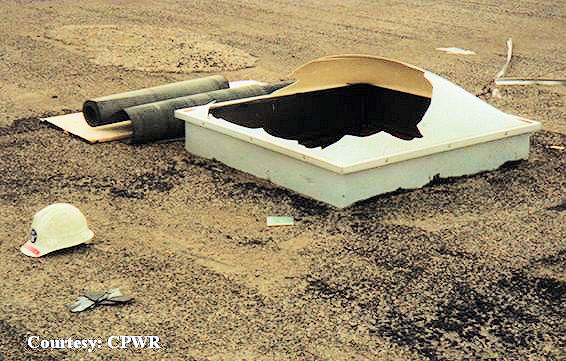Catch Platforms
Catch platforms, which consist of a stable platform and an attached standard guardrail, can protect roofers when other systems or methods are not feasible.

Platform guidelines:
- The platform should not be more than 18 inches below the eave line of the roof.
- The platform should extend horizontally at least 2 feet beyond the eave line of the roof.
- The platform must have a standard guardrail and toeboard. The top guardrail should rise substantially (at least 12 inches) above the eave line of the roof. Install intermediate rails or a solid barrier between the top rail and the platform to prevent a worker from sliding under the top rail.
Covers for Holes
Simple and effective when they're properly installed, rigid covers prevent workers from falling through skylights or temporary openings and holes in walking/working surfaces.
Safety criteria for covers:
- Will support at least twice (2 times) the maximum expected weight of workers, equipment, and materials. Skylights are not considered covers unless they meet this strength requirement.
- Are secured to prevent accidental displacement.
- Have full edge bearing on all four sides.
- Are painted with a distinctive color or marked with the word HOLE or COVER.
Fences and Barricades
Fences and barricades are warning barriers, usually made from posts and wire or boards, that keep people away from hazards such as wells, pits, and shafts.
Knowledge Check Choose the best answer for the question.
6-7. Hole covers will support at least _____ times the maximum expected weight of workers, equipment, and materials.
You forgot to answer the question!

